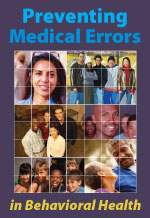By Ofer Zur, PhD
Entering into dual relationships with psychotherapy patients has been a topic of significant controversy in professional psychology. Although these types of extratherapeutic alliances have generally been considered to be unethical conduct, some authors recently have supported their development as both ethical and, in some cases, even therapeutic.
I was surprised to read the statement of my esteemed colleague, Ed Zuckerman, PhD, in the last issue of The National Psychologist (Nov/Dec, 2011), whereas part of an article on “The Fiduciary Heart of Ethics“ he stated, “We have an ethical obligation to avoid multiple relationships.”
This statement is in contrast to the APA’s code of ethics, (Section 3.05), which clearly states that: “A psychologist refrains from entering into a multiple relationship if the multiple relationship could reasonably be expected to impair the psychologist’s objectivity, competence or effectiveness in performing his or her functions as a psychologist or otherwise risks exploitation or harm to the person with whom the professional relationship exists.”
 Multiple relationships not reasonably expected to cause impairment or risk exploitation or harm are not unethical.
Multiple relationships not reasonably expected to cause impairment or risk exploitation or harm are not unethical.
Zuckerman’s statement and discussion of multiple relationships are not only incorrect, unsupported and outdated, but also are in clear contrast to the standard of care of psychotherapy and counseling. For example, multiple relationships are mandated in military settings where psychologists often have primary loyalty to the Department of Defense and only a secondary loyalty to the person they are treating in the consulting room. Multiple relationships are inherent in some correctional settings, such as prisons, where psychologists have a responsibility to the security of the institution, as well as to the mental health of actual patients.
Zuckerman, who to the best of my knowledge, lives in Pennsylvania, should be aware that multiple relationships are unavoidable in small communities and rural areas, which are quite prevalent in his state. In fact, they are a normal and healthy part of such interconnected communities. Familiarity and multiple relationships between all members of small communities, including health care providers, is how such communities survive and thrive.
Not all multiple relationships are created equal. There are different types of multiple relationships:
- A social multiple relationship is one in which a therapist and client are also friends, acquaintances or have some other type of social relationship within their community.
- A professional multiple relationship is where a psychotherapist/counselor and client, are also professional colleagues in colleges or training institutions, presenters in professional conferences, co-authors of a book, or other situations that create professional multiple relationships.
- Institutional multiple relationships take place in the military, prisons, some police departments and mental hospitals where multiple relationships are an inherent part of the institutional settings.
- Forensic multiple relationships involve clinicians who serve as treating therapists, evaluators and witnesses in trials or hearings.
- Supervisory relationships inherently involve multiple relationships and multiple loyalties. A supervisor has a professional relationship and duty to the supervisee and to the client, as well as to the profession.
- A sexual multiple relationship is where a therapist and client are also involved in a sexual relationship.
–
Sexual multiple relationships with current clients are always unethical. A business multiple relationship is generally ill-advised. These are relationships, in which a therapist and client are business partners or have an employer-employee relationship.
Multiple relationships can be ethical or unethical, legal or illegal, and can be avoidable, unavoidable or mandated. They can also be planned and anticipated or unexpected. Then they can be concurrent or sequential and can also very with different levels of involvement, from low/minimal to intense.
In summary:
- Non-sexual multiple relationships are not necessarily unethical or illegal.
- Multiple relationships can’t be avoided in many settings and are mandated in others.
- Multiple relationships are a healthy part of small and rural communities.
- Sexual multiple relationships with current clients are always unethical.
–
Non-sexual multiple relationships do not necessarily lead to exploitation, sex or harm. The opposite can be true. Multiple relationships can reduce isolation and prevent exploitation rather than lead to it. Almost all professional association codes of ethics do not mandate a blanket avoidance of multiple relationships.


















